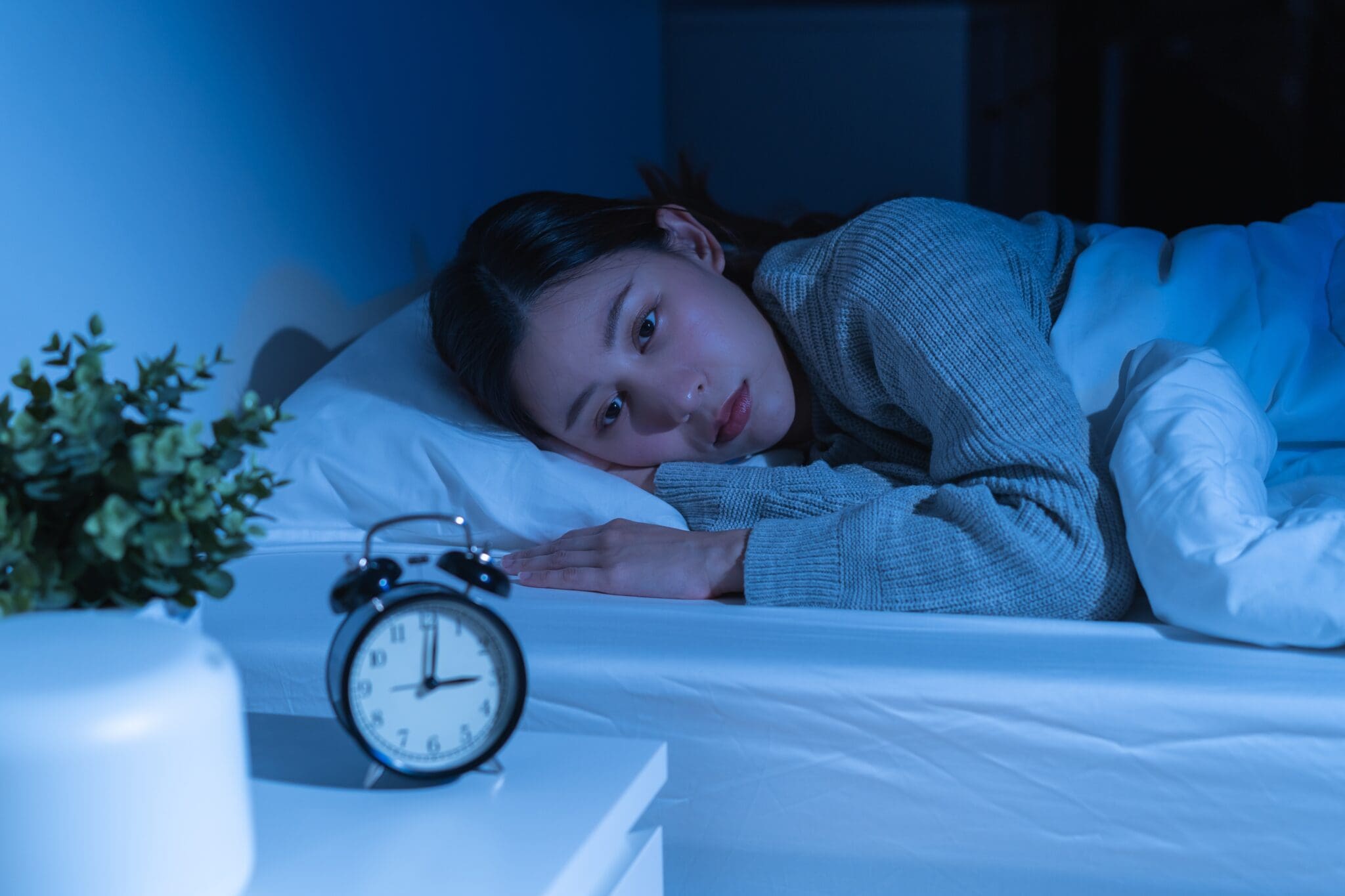In this article
What is OCD?
Obsessive compulsive disorder (OCD) is a mental health condition. It is thought to affect between 1% and 4% of the population at some point in their lifetime.
OCD is usually characterised by intrusive, obsessive thoughts and compulsive, repetitive behaviours. These thoughts and behaviours have a destructive relationship and can lead people with OCD to get stuck in a vicious cycle. This disorder can have a serious impact on a person’s life, career, education and relationships.
Although each person experiences OCD differently, typically, the OCD cycle appears as:
- Obsession – having an intrusive thought or feeling
- Meaning – attach a meaning or consequence to the thought or feeling
- Distress – feelings of being upset, uncomfortable, fearful or guilty
- Compulsion – thinking, saying or performing a word, number or action to give some temporary relief from the distress
- Relief – feel temporarily better because you feel the compulsion has helped you
- Obsession – the relief wears off and an intrusive thought reappears. The cycle goes full circle and repeats
People with OCD often have strong reactions to their intrusive thoughts and may attach significant meaning to them. These thoughts are often scary, violent or sexual in nature. Many people have thoughts about causing harm to a loved one. Some people also experience explicit or taboo thoughts relating to religion.
If you suffer from OCD, you may feel the need to do, say or think something to neutralise your intrusive thoughts or to make you feel better – these actions are referred to as compulsions or rituals.
Performing rituals only provides temporary relief and when intrusive thoughts return, people with OCD will feel increasingly distressed and may continue to perform these actions over and over. This can lead to them spending an increasing amount of time ruminating and performing their compulsions.
We all experience unwanted or intrusive thoughts from time to time. For people with OCD, their experience of intrusive thoughts differs from the rest of the population because their thoughts are:
- Repetitive
- Unwanted
- Cause significant distress
- Cause feelings of panic
These thoughts will also have a meaning attached to them, for example a person with OCD will believe that their thoughts alone have the ability to cause real world consequences. For example, someone with OCD could have intrusive thought about their spouse getting hit by a car and then fear that this will actually happen as a result of their thought. To ‘protect’ their spouse and make themselves feel better, they may feel compelled to perform an action. This could be anything from counting to a certain number, repeating a certain phrase a specific number of times or touching objects in a certain order.
Each person experiences OCD in their own individual way and will have their own unique obsessive thoughts and compulsive behaviours.
OCD is usually a long-term condition that will get worse if left untreated. It can, however, be managed effectively using different techniques and treatments. Common treatments for obsessive compulsive disorder include talking therapy, antidepressant medication or a combination of the two.
The types of Medications
There are several types of medication available to treat obsessive compulsive disorder. You may be offered medication if your OCD symptoms are severe and your doctor does not think you will be able to get them under control using other means, such as therapy.
The most common is a type of antidepressant called a selective serotonin reuptake inhibitor (SSRI). It is thought that SSRIs work by increasing the levels of a neurotransmitter in the brain called serotonin.
Serotonin is a chemical messenger that carries signals between the nerve cells in our brains. Serotonin levels can influence our mood, emotions and sleep. Once it has carried a message in our brain, serotonin is normally reabsorbed into the cells. SSRIs work by blocking this absorption making the serotonin available to our brains for longer and allowing it to pass messages to more cells.
It is not fully understood how taking an SSRI improves OCD symptoms specifically, although many patients report that after taking antidepressants their anxiety levels fall which means the symptoms of OCD have less of an impact on their mood.
If you try an SSRI and it does not help, you may be offered a tricyclic antidepressant called Clomipramine. Clomipramine is also available if you have reacted well to it before or if you have a good reason for not wanting to take an SSRI.
Before you take any medication to treat your OCD, you and your doctor will discuss whether taking antidepressants is right for you. This will include thinking about factors such as:
- Potential side effects
- Possible interactions with other medicine you take
- Whether or not you use illegal drugs or alternative treatments
- Whether you are planning on becoming pregnant
- Any allergies or bad reactions to medicine in the past
When you are taking medication for OCD, you should expect to attend regular review sessions with your doctor to monitor how you are getting on and how the drug is affecting you.

Medication types used to treat OCD
It can take a while for medication to start to work. This may take up to twelve weeks. During this time, you may notice little improvement in your OCD symptoms; you may also experience some side effects from taking OCD medication.
The medication used to treat OCD usually comes in the form of a tablet that you swallow whole. You should take your medication as directed, which is likely to be daily, depending on your prescription and symptoms.
According to the National Institute for Health and Care Excellence (NICE), the medicines that are currently licensed to treat OCD in adults in the UK include:
- Escitalopram
- Fluoxetine
- Fluvoxamine
- Paroxetine
- Sertraline
A drug called Citalopram can also be prescribed, although this is unlicensed.
For children and young people with OCD, current guidelines suggest a referral to the Child and Adolescent Mental Health Service (CAHMS):
- Children with mild OCD will be offered guided self-help sessions
- Children with moderate to severe OCD (or those who tried self-help and found it to be ineffective) should be offered Cognitive behavioural Therapy (with ERP)
If the above psychological treatments are not effective or are refused, an SSRI may be prescribed following an assessment and diagnosis by a specialist, for example a child and adolescent psychiatrist.
In children with OCD, the only SSRIs that are licensed to treat people under 18 are sertraline and fluvoxamine. Sertraline is the preferred option, with fluvoxamine being the second-line option. According to current guidelines the uses of sertraline for under 6s, fluvoxamine for under 8s are ‘off label’.
Off label means that the medicine is being prescribed for use in a different way than is described in its license, for example using a drug in an unapproved age group or at a different dosage. Children will not usually be prescribed antidepressants unless there is clear evidence that the child’s needs outweigh the potential risks and side effects.
In young people, SSRIs pose a risk of suicidal thoughts and anyone in this age group who take this medicine will need to be closely monitored.
Side effects
All medication comes with potential side effects, which may vary from person to person. For most people, it takes a few weeks for their body to get used to taking medication for OCD. During this initial stage, some people may experience unpleasant side effects from taking medicine to treat OCD, including SSRIs.
In general, SSRIs are considered safe to be taken regularly and are not addictive.
Possible side effects of taking SSRI medication may include:
- Agitation
- Feeling shaky or anxious
- Nausea or sickness
- Diarrhoea or constipation
- Feeling dizzy
- Problems sleeping (including insomnia or drowsiness)
- Headaches
- Loss of libido
- Weight loss and loss of appetite
In rare cases, SSRI’s can have serious side effects which include:
- Bruising or bleeding (including throwing up or passing blood)
- Confusion
- Stiffness or serious shaking
- Hallucinations
- Problems urinating
SSRI medication may not be suitable for people who are very young or who are elderly. In young people, there is evidence of serious side effects, including suicidal thoughts, as well as the potential for the drug to interfere with brain development. Elderly people who take SSRI’s may experience a significant drop in their sodium levels, known as hyponatremia. This can lead to a build-up of fluid inside the body’s cells, which can be very serious.
Serotonin syndrome
Serotonin syndrome is a rare but severe syndrome that has been linked to taking SSRIs. It occurs when the levels of serotonin in the brain become too high. It is more likely to happen if you take SSRI medicine in combination with other medicine, such as an opiate painkiller, illegal drugs, such as LSD or a natural treatment called St John’s Wort.
The symptoms of serotonin syndrome include:
- Confusion
- Agitation
- Rapid heart rate
- Sweating
- Muscle rigidity
Serotonin syndrome can be life threatening and it important to get immediate medical help if you experience an adverse reaction to taking medication.

Coming off Medications
If you decide to come off your medication it is important to do so sensibly and safely. Your doctor will be able to advise you on how to come off your medication.
After taking medicine to help with OCD, you may notice that your symptoms are decreasing because your medication is working. This means that if you stop taking antidepressants, your symptoms may return.
You may experience withdrawal symptoms if you decide to come off your OCD medication. These symptoms may include:
- Restlessness
- Problems sleeping
- Sweating
- Digestive problems (including nausea, diarrhoea or cramping)
- Loss of appetite
- Mood swings
- Irritability
- Dizziness or feeling lightheaded
- Sensations that feel like electric shocks
It can be dangerous to stop taking antidepressants suddenly. To reduce the chance of experiencing withdrawal symptoms, it is best to reduce your dosage gradually over time.
Your doctor will be able to advise you on how to safely reduce your dosage gradually; this may take you several weeks or months. The process around stopping your medication will depend on:
- The type of antidepressant you are taking
- Your prescribed dosage
- How long you have been taking antidepressants for
Withdrawal symptoms usually come on within a few days of stopping your medication. These symptoms may last a few weeks, although in some cases they can last months.
What is the best medication for OCD?
Everyone reacts differently to medication and what works for one person with OCD may not work well for another. The National Institute for Health and Care Excellence (NICE) recommends that the best way to find the right antidepressant medication for a patient with OCD is often through trial and error.
Most research suggests that the most effective way to treat OCD is with therapy or a combination approach of medication and therapy.
Who should not take OCD medication?
You should only take medication for OCD if it has been prescribed to you by a medical professional.
You should not take OCD medication if:
- You have had a bad reaction to the same, or similar, medication before
- You are allergic to any of the ingredients
- You are taking other medication that is known to interact with your prescribed medicine
- You are a heavy drug or alcohol user
People with certain health conditions should be wary of taking SSRIs. These conditions include:
- Diabetes (type one and type two)
- Bleeding disorders (such as haemophilia)
- An eye condition called narrow angle glaucoma
- Serious liver, kidney or heart problems
Caution should be taken if you have epilepsy and are taking SSRI medications and you should only take SSRIs if your epilepsy is under control. Stop taking the medication of it makes your epilepsy worse and make an appointment to speak to your doctor.
Generally, SSRI medication is not recommended of you are pregnant or breastfeeding. If your GP believes that the benefits outweigh the risks, they may advise you to continue to take SSRI’s even if you are pregnant or breastfeeding.
Sometimes, pregnancy or childbirth can be a trigger for OCD. This is a phenomenon that affects both mothers and fathers.
It is thought that OCD occurs during the prenatal (before birth) or post-natal (following birth) period due to factors such as:
- Increased anxiety and stress
- Major physical changes
- Feelings of increased responsibility
- The strong urge to protect newborns
- Fears around new babies getting ill or coming into contact with germs
- Hormonal changes
Looking after your mental health during pregnancy and after giving birth is extremely important. If you are struggling or feeling overwhelmed, you should speak to your doctor, midwife or health visitor for support.
What happens if OCD medication doesn’t work?
If your OCD medication does not work or fails to show the results you want, you should speak to your GP. They may suggest adjusting your dosage, trying a different medication or trying another type of treatment such as talking therapy.
Therapies that have proven affective for OCD include:
- Cognitive Behavioural Therapy (CBT)
- Exposure and Response Prevention (ERP) Therapy
- Acceptance and Commitment Therapy (ACT)
Sometimes, people try taking medication for OCD while they are waiting for talking therapy to become available. The wait for talking therapy on the NHS varies around the country, however it is possible that you may wait weeks or even months. If you have the money, you can also pay to go privately so you can start therapy sessions as soon as possible.
CBT with ERP can help people with obsessive compulsive disorder to better understand their intrusive thought cycles and learn to resist their compulsions. Cognitive behavioural therapy teaches long term techniques that can be used long after sessions have ended that can help those with OCD to feel less anxious and more in control.
Cognitive behavioural therapy (CBT) is known to work well for people with obsessive compulsive disorder, providing they engage with it fully. If you try a course of CBT (or any therapy) and decide that it has worked well and you would like to come off your medication, this is usually fine, as long as you do so safely. You can speak with your doctor or a mental health professional for further advice about stopping medication safely.
Other people find that a combination approach works best for them, where they use strategies that they have learned in therapy, alongside taking their prescribed medicine. What works for one patient may not work for another and it is important to find the approach that works best for you.

Deep brain stimulation for OCD
Deep brain stimulation (DBS) is a type of brain surgery that can be used to manage and treat a range of physical and issues, including OCD.
DBS is not considered as a first line treatment for OCD, however, if you have long-term OCD and medication and therapy have not helped, your doctor may consider offering it as an option.
According to NICE, deep brain simulation is a potential treatment option for ‘chronic, severe, treatment-resistant OCD in adults’.
The surgery is done under local anaesthetic. A scan, such as an MRI or CT, is used to identify the target areas of the brain (commonly the interior limb of the internal capsule). DBS requires an electrode to be placed into the brain and an electrical device to be placed beneath the clavicle in the chest. Electrical signals are sent from the device to the brain via thin wires under the skin. These signals stimulate specific areas of the brain.
The aim of DBS for OCD is to reduce obsessive thoughts and compulsive behaviours. One advantage of using this method is that the electrical signals can be adjusted (or stopped) depending on how a patient is responding.
Risks associated with DBS include bleeding, post-op infections or damage to the brain. Current NICE guidelines recommend that deep brain simulation for OCD requires more research to ascertain its safety and efficacy and that such procedures ‘only be done in centres with expertise in deep brain stimulation and experience in managing OCD’.






